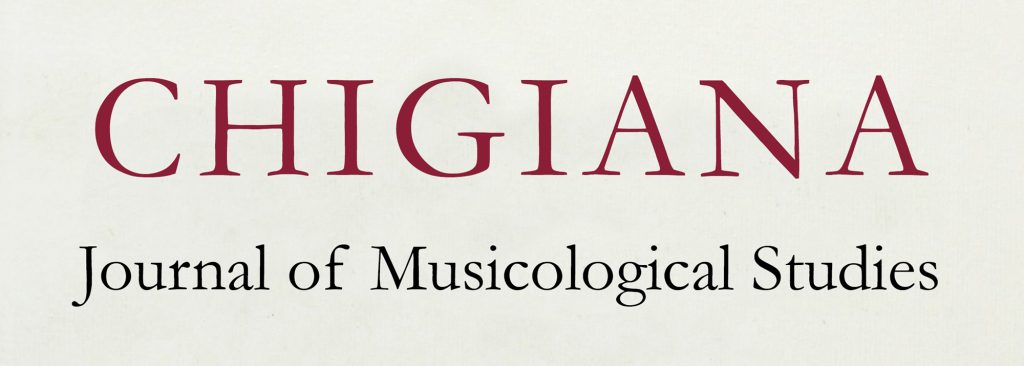
Intelligo ut credam? Rossini, la fede e la Petite messe solennelle
Federico Gon (Conservatorio “Giuseppe Tartini”, Trieste)
Gioachino Rossini era credente? Il rapporto tra il compositore e la fede cattolica è, come molti aspetti privati della vita del grande maestro, avvolto nel mistero; non ci sono infatti dichiarazioni decisive sul suo orientamento religioso, e le poche pervenute fino a noi mancano di autenticità, sconfinando spesso nell’aneddotica. I fatti dimostrabili sembrano essere pochissimi: oltre a essersi sposato due volte seguendo il rito romano, chiese i sacramenti in articulo mortis; il fatto che abbia composto brani di musica sacra – tra i quali spiccano lo Stabat Mater e la Petite messe solennelle – non è indice di provata fede: i casi delle messe schubertiane e della Missa solemnis di Beethoven hanno mostrato, nel contesto musicologico, quanto sia difficile e rischioso stabilire simili parallelismi. Rossini ebbe forse un rapporto travagliato e diffidente con la fede (non dissimile da quello che ebbe Verdi, spesso accusato – senza prove concrete – di ateismo), dovuto in primo luogo all’educazione familiare e scolastica: il padre, fervente sostenitore degli ideali della Rivoluzione francese, quasi certamente non era credente; al contrario, i suoi primi veri maestri furono tutti sacerdoti (don Giuseppe e don Luigi Malerbi a Lugo, padre Stanislao Mattei al Liceo Musicale di Bologna). Tuttavia, proprio la crepuscolare Petite messe solennelle (1864) potrebbe fornire un punto di vista privilegiato sulla fede da parte dell’anziano compositore, in virtù di alcune scelte musicali ed espressive compiute in quelle parti dell’Ordinario in cui è più forte il rapporto (ontologico, per il cristianesimo) tra peccato-pentimento-assoluzione/perdono: il Kyrie, il Credo e il Gloria. L’analisi della Petite messe, con particolare riferimento alle parti suddette, rivela quindi un rapporto contrastante con la fede cattolica, segnato sia dall’uso di citazioni di altri repertori (ad esempio – e in modo sorprendente – Winterreise) sia da momenti di calcolata divergenza tra il testo sacro e la sua trasfigurazione musicale, che provocano – non senza una certa dose di umorismo – un disorientamento che non si concilia con una vera professione di fede, ma più verosimilmente con un’idea generale di agnosticismo.
Was Gioachino Rossini a believer? The relationship between him and the Catholic faith is, like many private aspects of the great master’s life, shrouded in mystery; in fact, there are no decisive declarations on his religious orientation and the few that have come down to us lack authenticity, often trespassing on the anecdotal. The demonstrable facts appear to be very few: in addition to marrying twice following the Roman rite, he requested the sacraments in articulo mortis; the fact that he composed pieces of sacred music – among which the Stabat Mater and the Petite messe solennelle stand out – is not an indication of proven faith: the cases of the Schubertian masses and of Beethoven’s Missa solemnis have shown, in the musicological context, how difficult and risky it is to establish such parallels. Rossini perhaps had a troubled and unfriendly relationship with the faith (not unlike the one that Verdi had, often accused – without concrete evidence – of atheism), mainly due to family and school education: his father, a fervent supporter of the ideals of the French Revolution, wasn’t almost certainly a believer; on the contrary, his first real teachers were all priests (don Giuseppe and don Luigi Malerbi in Lugo, father Stanislao Mattei at Liceo Musicale in Bologna). However, precisely the crepuscular Petite messe solennelle (1864) could provide a privileged point of view on the faith by the elderly composer, by virtue of some musical and expressive choices made in those parts of the Ordinary in which the relationship (ontological, for Christianity) between sin-repentance-absolution/forgiveness is mentioned: the Kyrie, the Credo and the Gloria. The analysis of the Petite messe, with particular reference to the aforementioned parts, therefore reveals a contrasting relationship with Catholic faith, marked both by the use of decisive quotations from other repertoires (for example – and surprisingly – Winterreise) and from moments of calculated divergence between the sacred text and its musical transfiguration, which provoke – not without a certain dose of humor – a disorientation that certainly is not reconciled with a true profession of faith, but more likely with a general idea of agnosticism.
